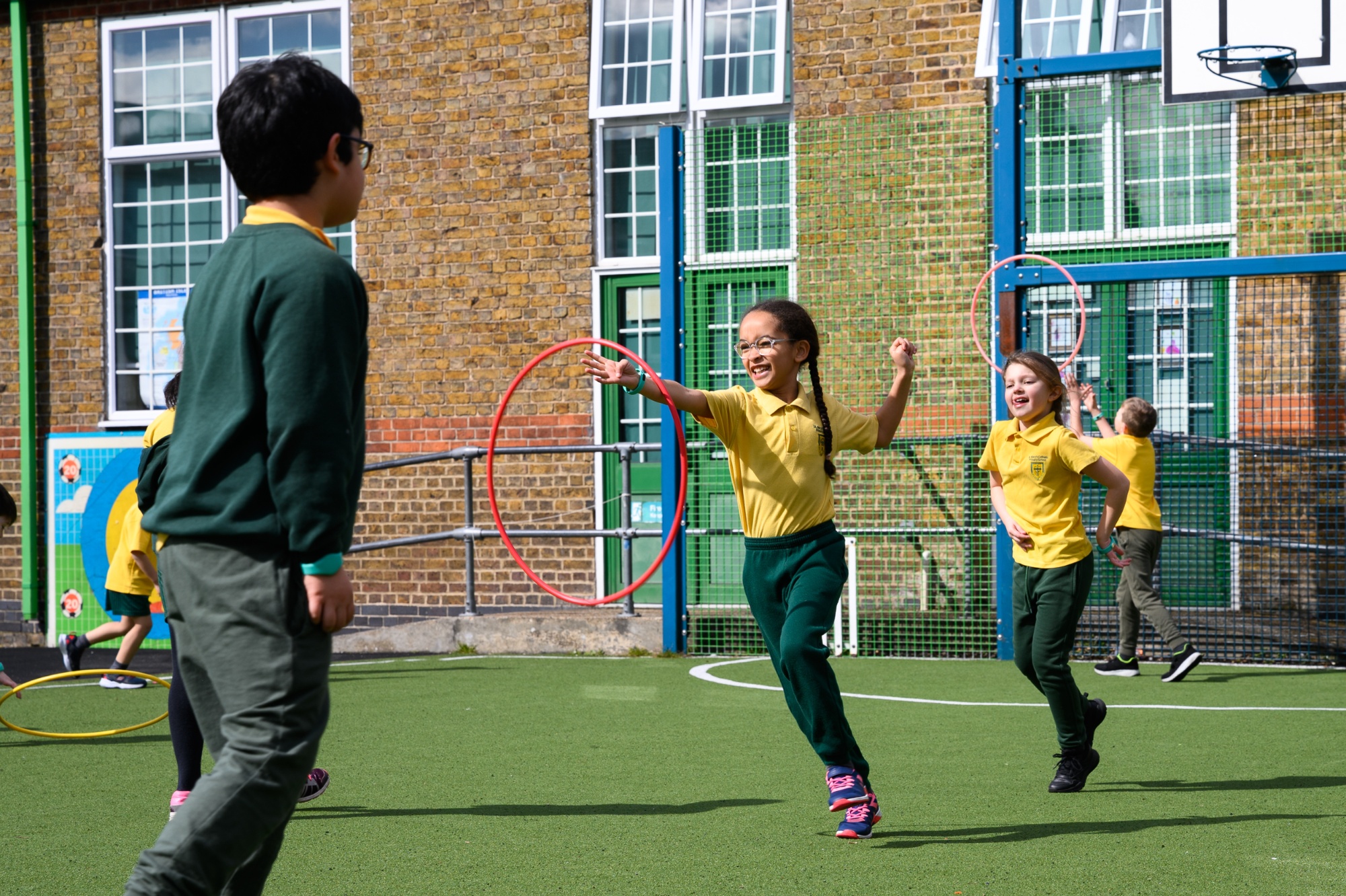Physical Education

Curriculum Vision
Our vision for all pupils at St. Mary's is for children to feel inspired and engaged when taking part in PE. This can be in the form of excelling in competitive sport, which we provide in our termly Intra-school events, or in our exciting and inclusive PE lessons. These lessons allow children to flourish in both physical literacy and mental confidence - as well as supporting their knowledge of how to live a healthy lifestyle. We also believe in providing opportunities for all pupils to compete and take part in activities outside of school, which allow children to build character and embed values such as fair-play and respect.
Aims
 For all children to be competent in a broad range of fundamental movements (balance, locomotive and ball skills) and to have met the 'End Point' for their Key Stage.
For all children to be competent in a broad range of fundamental movements (balance, locomotive and ball skills) and to have met the 'End Point' for their Key Stage.-
For all children to be physically active for sustained periods of time.
-
To provide a range of opportunities for children to engage in competitive sports and activities. This includes opportunities for pupils with Special Educational Needs to participate in inclusive competitions such as: New Age Kurling, Boccia and Panathlon.
-
To impart a love for physical activity along with a range of skills and knowledge on how to lead a life-long interest in active and healthy lives.
How is the curriculum planned?
EYFS
EYFS follows the programme realFoundations. The lessons are taught thematically, which means they are based around a story and the activities reflect those that are found within the book. Each lesson has a range of songs, games, stories and skills to engage each child in a range of ways.
KS1
Years 1 and 2 continue this thematic approach with realPE; however, each term also has a focus on an element/skill within PE. These are: personal, social, cognitive, creative and health & fitness - this approach is mirrored in KS2 to ensure continuity. Furthermore, each term will have a range of fundamental movements as the focus. In both KS1 and KS2, we also ensure that gymnastics and dance are both explicitly taught for at least one term.
KS2
Years 3–6 also focus on one particular skill each term when using the realPE scheme. The skill is taught through a series of activities and games, none of which are traditional sports. The reason behind this is to ensure every child enjoys and engages in PE, as children who do not enjoy a particular sport will quite often not feel enthusiastic about taking part. However, to prepare Year 6 for Secondary School, we introduce some sports that have links to the games and activities found within the realPE scheme.
Additionally, all students will have 15 hours of specialist swimming lessons before they finish year 5 to ensure they meet the expected standard of being able to swim for 25m unaided by the end of KS2.
Sporting Achievements
Despite being the smallest school in the Borough, we have had a fantastic year competing in interschool competitions. Over the course of the last year, this is a list of our achievements and competitions we have participated in:
-
Basketball Champions
-
Girls Netball League
-
Boys Cross Country
-
Girls Cross Country (2nd place)
-
Boccia (inclusive) - 2nd place
-
Panathlon Champions (inclusive)
-
New Age Kurling (inclusive)
-
Borough Football League & Cup
-
District Sports (athletics)
An active lifestyle is essential for preventing health issues like heart disease and diabetes. With an ever-increasing obesity problem among children in the UK, PE – and physical exercise in general – is becoming a crucial part of the curriculum.
1 in 4 children are leaving primary school obese, according to a study conducted by the National Institute for Health and Care. From their research, they stress that an effective PE programme will help in reducing these numbers.
Beyond the fitness aspects of PE, its importance in developing social skills and cognitive abilities is becoming increasingly apparent. Developing physical skills is only half the battle; memory, focus, motor skills and mental health can all be vastly improved when regularly engaging in PE lessons.
Building social skills and friendships during PE can help boost self-esteem, and in doing so improve a child’s mental health and personal development.
